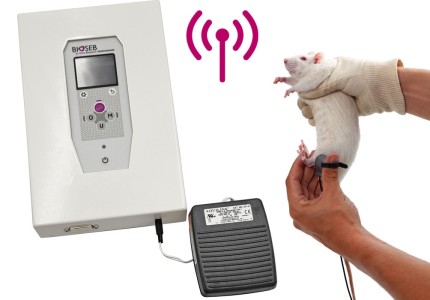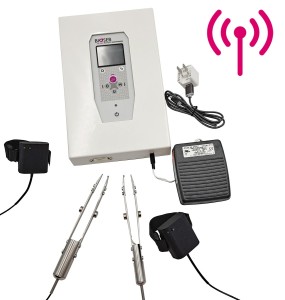Authors
L. Daulhac, V. Maffre, C. Mallet, M. Etienne, A.-M. Privat et al.
Lab
Clermont Université, Université d'Auvergne, Pharmacologie Fondamentale et Clinique de la Douleur, Laboratoire de Pharmacologie, Faculté de Pharmacie, Clermont-Ferrand, France.
Journal
European Journal of Pain
Abstract
The N-methyl-d-aspartate receptor (NMDAR) contributes to central sensitization in the spinal cord, a phenomenon which comprises various pathophysiological mechanisms responsible for neuropathic pain-like signs in animal models. NMDAR function is modulated by post-translational modifications including phosphorylation, and this is proposed to underlie its involvement in the production of pain hypersensitivity. As in diabetic patients, streptozotocin-induced diabetic rats exhibit or not somatic mechanical hyperalgesia; these rats were named DH and DNH respectively. At three weeks of diabetes, we present evidence that somatic mechanical hyperalgesia was correlated with an enhanced phosphorylation of the NMDAR NR1 subunit (pNR1) in the rat spinal cord. This increase was not found in normal and DNH rats, suggesting that this regulation was specific to hyperalgesia. Double immunofluorescence studies revealed that the numbers of pNR1-immunoreactive neurons and microglial cells were significantly increased in all laminae (I-II and III-VI) of the dorsal horn from DH animals. Western-blots analysis showed no change in NR1 protein levels, whatever the behavioural and glycemic status of the animals. Chronic intrathecal treatment (5_g/rat/day for 7days) by U0126 and MK801, which blocked MEK (an upstream kinase of extracellular signal-regulated protein kinase: ERK) and the NMDAR respectively, simultaneously suppressed somatic mechanical hyperalgesia developed by diabetic rats and decreased pNR1. These results indicate for the first time that increased expression of pNR1 is regulated by ERK and the NMDAR via a feedforward mechanism in spinal neurons and microglia and represents one mechanism involved in central sensitization and somatic mechanical hyperalgesia after diabetes.
BIOSEB Instruments Used
SMALGO: SMall animal ALGOmeter (BIO-SMALGO),Rodent pincher - analgesia meter (BIO-RP-M)
Keywords/Topics
Miscellaneous research domains
Source :
http://onlinelibrary.wiley.com/doi/10.1016/j.ejpain.2010.06.003/abstract

 Pain - Thermal Allodynia / Hyperalgesia
Pain - Thermal Allodynia / Hyperalgesia Pain - Spontaneous Pain - Postural Deficit
Pain - Spontaneous Pain - Postural Deficit Pain - Mechanical Allodynia / Hyperalgesia
Pain - Mechanical Allodynia / Hyperalgesia Learning/Memory - Attention - Addiction
Learning/Memory - Attention - Addiction Physiology & Respiratory Research
Physiology & Respiratory Research











![Dynamic Weight Bearing 2.0 – Postural Module [Add-on]](https://bioseb.com/733-home_default/dynamic-weight-bearing-20-add-on-postural-module.jpg)
























 Pain
Pain Central Nervous System (CNS)
Central Nervous System (CNS) Neurodegeneration
Neurodegeneration Sensory system
Sensory system Motor control
Motor control Mood Disorders
Mood Disorders Other disorders
Other disorders Muscular system
Muscular system Joints
Joints Metabolism
Metabolism Cross-disciplinary subjects
Cross-disciplinary subjects CONFERENCES & MEETINGS
CONFERENCES & MEETINGS 
